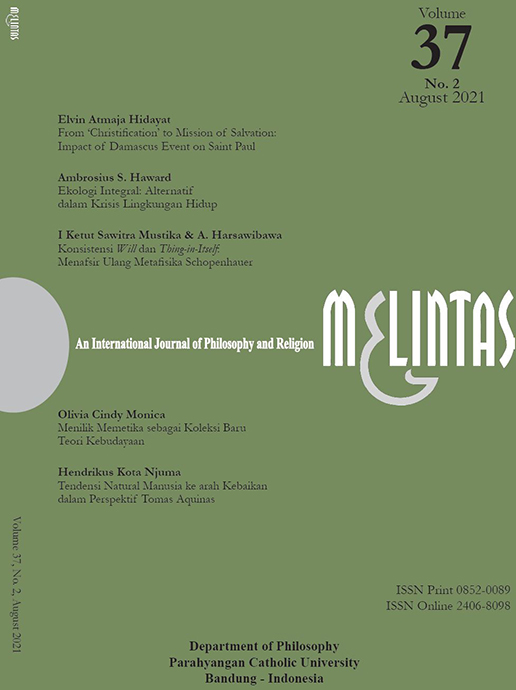Tendensi Natural Manusia ke arah Kebaikan dalam Perspektif Tomas Aquinas
DOI:
https://doi.org/10.26593/mel.v37i2.6298Keywords:
natural tendency, goodness, appetitus naturalis, actus humanus, natural law, divine law, thomas aquinasAbstract
In Thomas Aquinas’ view, every human being by nature is directed towards goodness. The goodness as the form of being (ens) is inside the human self. According to Thomas, human goodness is a participation in the highest goodness, namely, God, and thus every human being desires the perfection of the goodness by directing his or herself towards God. This natural tendency (appetitus naturalis) proves that human is directed towards an ‘end’. This goodness appears externally in the human action, and as an external action it is named actus humanus, which manifests the moral aspect of a human being. A person who actualises the goodness in his or her external action affirms his or her essence to the highest goodness. Goodness in morality depends on God as the supreme criterion of morality. It is good if it nears God and is evil if it moves away.
Downloads
Published
Issue
Section
License
Copyright (c) 2022 Hendrikus Kota Njuma

This work is licensed under a Creative Commons Attribution-NonCommercial 4.0 International License.
MELINTAS applies the Creative Commons Attribution (CC BY NC) license to articles and other works we publish. If you submit your paper for publication by MELINTAS, you agree to have the CC BY NC license applied to your work.


